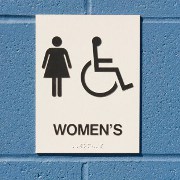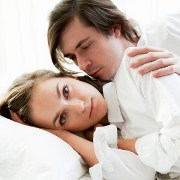 Photo: Getty Images
Photo: Getty Images
“Mild urinary leakage affects most women at some time in our lives.”
That quote -- which reassures me as my morning cup of Darjeeling prompts yet another bathroom break -- comes from Dr. Mary Rosser of Montefiore Medical Center in New York City, as quoted in a Health.com slideshow on “10 Things That Can Make Incontinence Worse.” Rosser also explained that leakage is more common in women than in men and more common in older women than younger ones.
Among many helpful suggestions and reminders, the slide show zeroed in on fluid intake and warned that women may be headed for trouble with constipation, dehydration and kidney stones if they cut down on beverages to solve the problem. Better to drink the recommended eight 8-ounce glasses of fluid a day.
Water is the go-to beverage because, as many women know, coffee and tea are diuretics. Caffeine consumption is probably the first thing health care practitioners will ask about when women seek advice about an overactive bladder. If you are not willing to do total caffeine withdrawal, then it’s at least worth experimenting with fewer cups a day.
And then there are those alluring cans and bottles of soda pop. But between the carbonation as well as the caffeine that these products often contain, they too might contribute to the need to go. By the way, alcohol is also a diuretic, the slide show pointed out.
What about juices? Probably a good choice once or twice a day. But the slide show cautioned against cranberry juice, which has a high acidic pH that sometimes irritates the bladder. Cranberry juice still has a good rep, though, as far as controlling urinary tract infections.
Interestingly, the slide show also discussed spicy foods, citrus fruits and chocolate as possible no-no’s if urinary leakage is getting to be a problem.
Medically speaking, if you are 30 or older and have concerns about bladder control, it might be either stress urinary incontinence or urge urinary continence. The first type is often linked to childbirth, a hysterectomy or menopause and refers to urine leakage during exercising, sneezing and other “stress”-like movements. The second type, also termed overactive bladder, is an abnormal and uncontrollable urge to go the bathroom and might not necessarily be accompanied by urinary leakage, according to a Sept. 20, 2008, EmpowHER article by Dr. Matthew Karlovsky, a specialist in female urology.
Karlovsky listed a number of causes of overactive bladder, including infection, interstitial cystitis and polyps. But it was no surprise to me as I dumped out my iced tea glass and switched to water that “excessive caffeine/fluid/alcohol” were at the top of the list.
Sources:
http://www.health.com/health/gallery/0,,20426271_1,00.html
https://www.empowher.com/community/share/bladder-control-aka-urinary-incontinence
Reviewed June 28, 2011
by Michele Blacksberg R.N.
Edited by Alison Stanton



Add a CommentComments
There are no comments yet. Be the first one and get the conversation started!